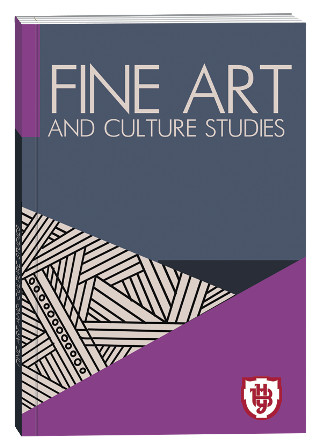THE BREAD-WINNERS OF EDUCATION HAVE FEATURES OF DEVELOPMENT OF MUSICAL CULTURE IN THE INSTRUMENTAL CARRYING OUT
DOI:
https://doi.org/10.32782/facs-2025-3-1-25Keywords:
bread-winners of education, musical culture, instrumental carrying out, musical art, academic carrying outAbstract
The musical culture of teacher that grows on the basis of musically-aesthetic achievements of our society shows a soba the certain level of development of musical interests, necessities, capabilities, capabilities to estimate the musical phenomena from the point of view of a withstand ideal. At the same time includes for itself possessing the corresponding complex of concepts, skills of creative activity, feelings and moods that orient personality on mental and ethical perceptionof musical art, that allows to talk about her difficult-elementary nature. Actuality of problem of forming of musical cultureof bread-winners consists in that it is not enough to execute popular music only, but also it is needed to awake interest the music a listener. Forming of musical culture of future teachers of artistic establishments of education envisages a wide acquaintance with the musical phenomena, understanding of their maintenance, problems. She has an only goal-all-round to develop the active in public life citizen of our state.The purpose of the article is – to work, to work out and apply in practice teaching terms and criteria of forming, feature of development of musical culture for the bread-winners of education in the instrumental carrying out.The methodology of the work consists in the application of such methods as: experiment, statistical аналiз and treatmentsof research results, pedagogical supervision, theoretical analysis of literature on issue of study of experience of teachers.Scientific novelty. As a musical culture of personality is a complex concept that means a measure and normof development of the personal properties, that is why the increase of forming efficiency will assist activation of independentactivity of bread-winners of education that is sent to the scalene capture by material of musical art. Therefore in research the features of development of musical culture of bread-winners of education are certain in the instrumental carrying out.As a conclusion, it is marked in the article, that research gave an opportunity to set conformity to law, that determinesefficiency of education of musical culture of bread-winners, namely, than anymore in educational-educator processunity, intercommunication, cooperation of pedagogical pre-conditions, the more substantial possibility of more dynamic development of musical culture of bread-winners of education.
References
Квятковський Вікентій. Українська музична енциклопедія. У 2 т. Т. 2 : Е–К / гол. редкол. Г. Скрипник. Київ : Видавництво Інституту мистецтвознавства, фольклористики та етнології НАН України, 2008. С. 357–358.
Ляшенко І. Ф. Музика і естетичне виховання. Мистецтво. 1969. № 6. 76 c.
Ляшенко Іван Федорович. Енциклопедія Сучасної України [Електронний ресурс]; НАН України, НТШ. Київ : Інститут енциклопедичних досліджень НАН України, 2017. URL: https://esu.com.ua/article-60130
Ніколаєва Л. Іван Ляшенко як творець музичної україністики. Наук. зб. Львів. муз. академії. 2000. Вип. 8, ч. 1. С. 296–300.
Пясковський І. Логічне і художнє в музичному мисленні. Часопис Національної музичної академії України імені П. І. Чайковського. 2009. № 1 (2). С. 21–25.
Самойленко О. Часові епістеми музики і темпоральні категорії історичного музикознавства. Часопис Національної музичної академії України імені П. І. Чайковського. 2017. № 3 (36). С. 9–12.
Тимошенко О. Музичне життя України на сучасному етапі. Мистецтвознавство України: зб. наук. праць. Київ : КМУ, 2003. Вип. ІІІ. С. 191–199.








